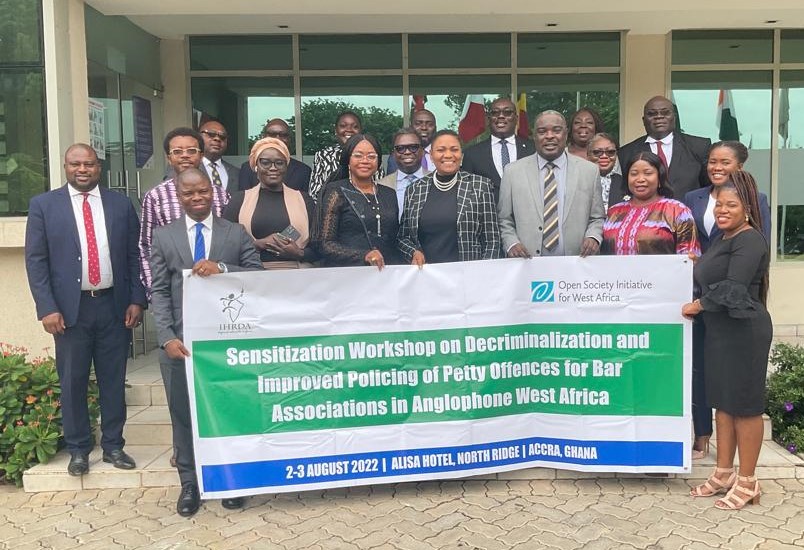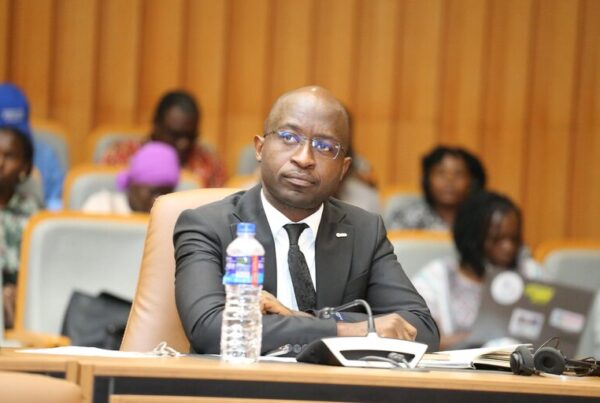Banjul, 2 August 2022: IHRDA is organising a workshop, 2-3 August 2022, in Accra to sensitize executives of Bar Associations in Anglophone West African countries on the role Bar Associations can play in the campaign for decriminalization and improved policing of petty offences in West Africa.
The workshop seeks to enlighten participants on the situation of petty offences in Anglophone West Africa and the opportunities for taking action toward decriminalization, better advocacy and litigation of petty offences in their respective countries, using regional human rights standards and best practices.
“Laws on petty offences in many countries are largely unfair to the poor and marginalized, threatening their fundamental human rights. Bar Associations are major actors in the administration of justice and the protection of human rights, especially the rights of poor and ordinary people in society. We therefore hope, following this workshop, they would be playing an active role in the advocacy for decriminalization and improved policing of petty offences in their respective countries, and contributing to enhance our legal systems” – IHRDA Executive Director, Gaye Sowe, observed.
Topics covered include overview of petty offences in West Africa – situation, impact, opportunities and challenges; human rights violations occasioned by petty offences; the negative impact of petty offences on the poor and marginalized; and State accountability in the African human rights system. Participants would also explore resources from African Union mechanisms, such as the Principles on decriminalization of petty offences in Africa, the AU Model Law on Policing and the Advisory Opinion on the compatibility of Vagrancy Laws with the African Charter on Human and Peoples’ Rights, and discuss their role in inspiring national efforts to decriminalize and improve policing of petty offences.
This activity falls within the framework of the campaign to decriminalise and enhance policing of petty offences in West Africa, funded by Open Society Initiative for West Africa (OSIWA).






